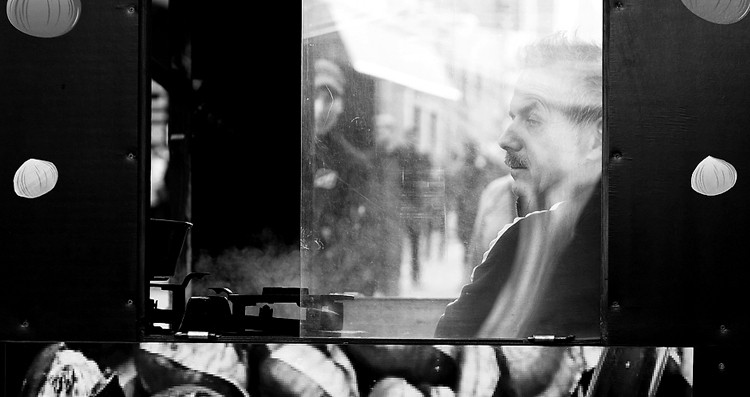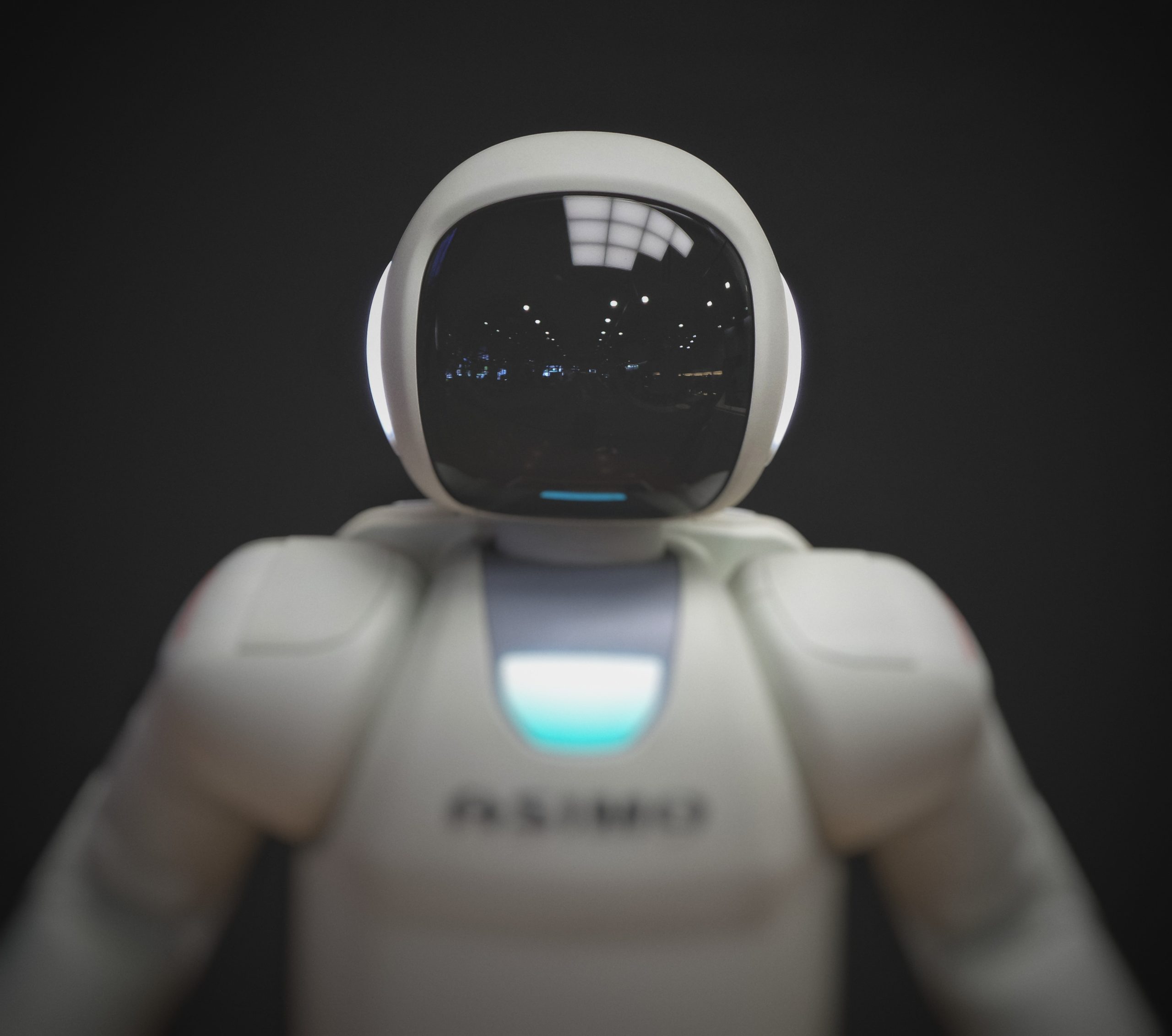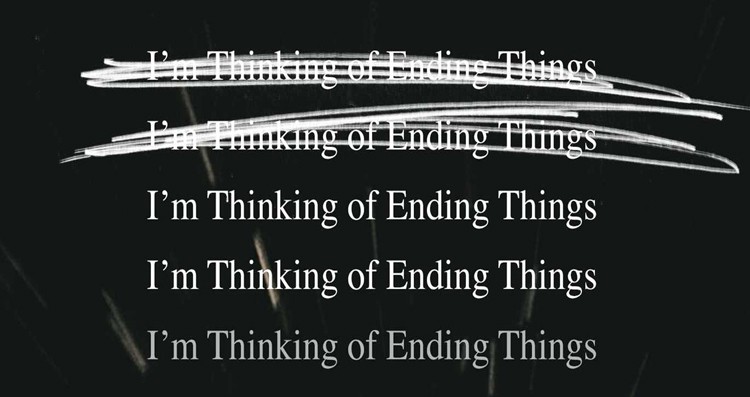Books & Culture
I, Borne
Jeff VanderMeer’s newest novel is a triumph of science fiction

In early 2016, a twitter account called “Paperback Paradise” went viral by replacing the titles of cheesy paperback books (Nancy Drew, The Hardy Boys, etc.) with hilariously crude substitutes. Some of the cover art includes gems from the 60’s/70’s age of pulp science fiction, which practically begs for parody: Science fiction is always trying to predict the future, the artistic interpretations often become dated faster than books from any other genre. But as comical as theses covers are (my favorite is the one simply entitled, “Run Faster, you Bipedal Bitch”), do these parodies prove that some concepts are just too weird to be good? If your cover art features a vampire taking over a space station, a UFO shooting a pterodactyl in space with a laser, or a Grecian hero riding a giant Cat-man across a Martian landscape, does that mean that the text couldn’t possibly be emotionally complex or a rich exploration of the human condition?
“This novel is a stunning example of science fiction, but more than that, it is the most human book I’ve read in years.”
The answer is no. Just because the concept of a story is bizarre on the surface has no bearing on the quality within, and writers of genre fiction know this best. As proof, I submit to you Jeff VanderMeer’s Borne: A post-apocalyptic story of two scavengers, a shape-shifting tentacle monster, a magician, and a skyscraper-sized flying bear. This novel is a stunning example of science fiction, but more than that, it is the most human book I’ve read in years. This result is counter-intuitive to say the least, but when you lay out the factors that have borne Borne, it is easy to see why. Science Fiction does not have to be a vehicle for simple allegory and metaphor. At its best, sci-fi stories can be touching, profound, and shockingly beautiful, no matter how many eyes a person has.
VanderMeer and his partner, Ann, are without a doubt the de-facto experts of all things sci-fi — in 2016, they co-edited The Big Book of Science Fiction. This incredible tome not only features stories from famous authors, but a well-researched history of the genre and the people who helped create it. Along with an extensive writing career that spans decades, he’s also the author of the critically-acclaimed “Area X Trilogy,” comprised of the books Annihilation, Authority, and Acceptance. Under the title Annihilation, this trilogy is currently being adapted to film.
This considered, Borne has quite a bit to live up to, but don’t let that cloud your judgement before reading it. The fact is that Borne is a spectacular, meticulous, and gorgeous novel — much like the creature Borne itself, it is utterly complex and yet presented in relatable and riveting form. With Borne, VanderMeer capitalizes on his knowledge of biology to create his own mythos, beyond the common tropes of spaceships, laser guns, and talking robots. The world of Borne is one in which wounds are healed by worms inside your body, door locks are created from insects, self-protection comes from hand-held spiders, and you can wind down from a long day by swallowing some alcohol minnows, culled from the few sources of water not contaminated by chemical waste.
The First In Tiller’s Encircling Trilogy Doesn’t Disappoint
Rachel and Wick live in the Balcony Cliffs, an apartment stronghold they’ve created to protect themselves from the danger of a planet ruined by the rampant biotech experiments of the Company. They both have their strengths: Wick is a former scientist who worked with the Company, and has an intimate knowledge of the biotech that can help and harm them. Rachel is an experienced scavenger, able to pull useful food and supplies out from the wreckage of the world and set traps for the dangers that would try to follow her back. Together they have a semblance of a life, a relationship based on need and, after a time, trust.
Wick helps make ends meet by dealing memory beetles to the stricken remainders of the destroyed city, who love nothing more than to stick one in their ears and be flooded with the memories of someone else for a while. Always there is the danger of Mord, a giant bear created by the defunct Company before the world went to hell. He dominates the land and sky, destroying whatever he wishes, and becomes an omnipresent part of life for those who dwell in the city ruins.
Some people take it upon themselves to worship Mord as a god, but others, like Rachel and Wick, simply acknowledge him and grow somewhat accustomed to his presence. Rachel even takes it a step further, becoming comfortable enough to scavenge what she can from the shaggy fur of Mord, knowing where his blind spots are. It is during one of these scavenging missions that she discovers Borne, at that time a small pod tangled up in the hairy mass, an enigma ripe with possibility.
From the beginning, Rachel is protective of the strange pod, asking Wick to not take it apart when she returns. As the thing begins to grow and change, she gives it the name “Borne” taken from something Wick had told her about the creation of his infamous fish project at the Company: “He was born, but I had borne him.” Just listen to one of her initial descriptions of them —
“He had abandoned the sea-anemone shape in favor of resembling a large vase or a squid balanced on a flattened mantel. The aperture at the top had curled out and up on what I chose to interpret as a long neck, sprouting feathery filaments, which almost seemed like an affectation.”
Like a parent might do, Rachel is already assigning personality traits to Borne, even though he is physically the farthest thing from a human child. Soon Borne is able to speak, and after initial fear and skepticism, Rachel is soon teaching Borne everything she knows, about her own life and the world around them. Borne’s speech and curiosity grows exponentially, often resulting in stumbles in context and syntax. These mix-ups range from the humorous — one can just imagine a toddler in Borne’s place when it exclaims “Long mouse!” at a picture of a ferret — to odder things, like Borne claiming it “knows” the lizards it eats.
Wick is much more skeptical of the developing creature, pointing out the sinister things Rachel chooses to ignore, like the fact that it never excretes anything. As a former Company employee, Wick is distrustful of any biotech he doesn’t understand, particularly when the unprompted Borne begins to ask if it is a weapon. Rachel responds with a telling line, “You are a person, but like a person, you can be a weapon, too.” Despite all her affection and projected humanity toward Borne, she simultaneously recognizes that it is still a great unknown, one that seems to be growing (physically and mentally) without a very clear explanation.
Through Borne’s awkward adolescence, Rachel continues the mother-child dynamic, even when things begin to unravel. Borne soon surpasses the phase of “not knowing any better,” becomes evasive about his movements and behavior, and even moves into an apartment of his own. Paranoia rises with Wick, who believes Borne knows more about itself than it is telling, and confrontations erupt that mirror that of typical childhood drama. Borne continually surprises Rachel with his increased diction and emotional capacity, far more than he could have learned from the library at Balcony Cliffs.
“Okay,” Borne said, and his eyes formed a kind of reproachful smile. “I don’t always understand, Rachel. I love you, but I don’t understand.”
Pressures from outside begin to take their toll as well. A new force in the city, simply known as the Magician, is consolidating power and holding leverage over Wick through unknown means. Mord extends his rule over the city through the Mord Proxies, bears which are normal-sized, but incredibly fast and equipped with venomous claws and fangs. Mutated feral children, some equipped with emerald-green wasp eyes and other horrors, become bold and more organized in their attacks. Yet even as things get worse, in regards to Borne and the world around them, Rachel goes against her survivalist instinct and protects Borne from the fears of Wick and the new dangers. She does this because of what Borne has done for her, the light in her life which only an innocent mind could create —
“Borne didn’t know it was all deadly, poisonous, truly disgusting. Maybe it wasn’t, to him. Maybe he could have swum in that river and come out unscathed. Maybe, too, I realized right then in that moment that I’d begun to love him. Because he didn’t see the world like I saw the world.”
Couldn’t any parent, any human being, find even the hardest of hearts softened by this presence of innocence, and the peace that it brings them on a chaotic planet?
This is Science Fiction doing what it does best. VanderMeer has created a narrative familiar and close to the hearts of many — the struggles of parenthood — and enmeshed the reader emotionally in these characters, despite the weirdness of the premise. His master-stroke waits down the line, as he takes this amazing world he has built and manipulates it in gut-wrenching ways.
Borne makes the readers question their own relationships, the reality of trust, and the nature of family in a devastated world. Like a clever biotech creature, VanderMeer has lured you into a trap, one in which you are drawn to with floral, familiar scents and has left you utterly vulnerable. “I prefer the old betrayals, the kind based on trust,” Rachel quips toward the end of the book, within a climactic conclusion that confirms that the fault is truly not in our stars, but in ourselves.
VanderMeer has created an encompassing, original world, filled with concepts that are seemingly alien but disturbingly familiar, like the bizarre creatures of Wayne Barlowe’s Expedition. More importantly, Borne addresses questions we as a species will need to consider when the biological things we create start talking back to us: Things that can learn from us, but must experience life in very different ways. Simply put, Jeff VanderMeer is doing for biotech what Isaac Asimov did for artificial intelligence.
I have no doubt that Borne will be considered a giant of Science Fiction, alongside masterpieces like Dune, the Lilith’s Brood trilogy, and Childhood’s End. I believe that it is the duality of its nature that makes it special — it is fantastic and familiar, silly and mysterious, epic and down-to-earth. What’s more, it does not try to include these things in a haphazard way. The elements of Borne fit together perfectly, a strange little thing filled with wonder and secrecy, hinting at even more complexity just out of sight. Borne will dazzle you with its wonders and horrors, revealing itself as another piece of the puzzle, a reflection on the terror and beauty of being alive.
Jeff VanderMeer & Cory Doctorow Discuss the Future of Sci-Fi & the World









